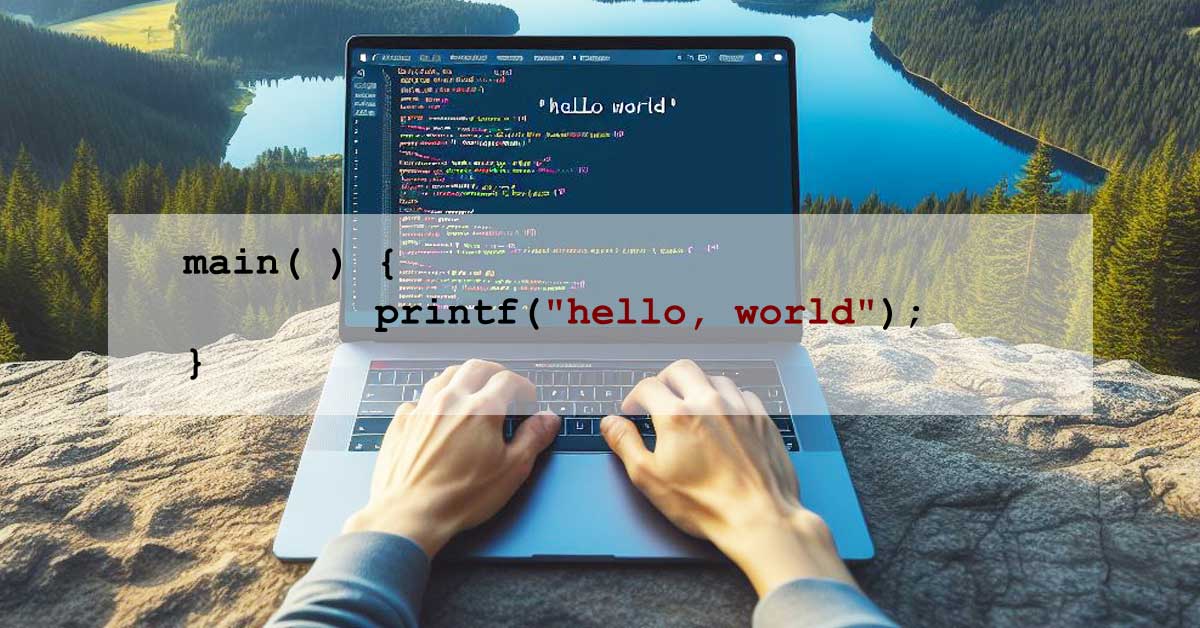Gaining mastery of the foundations is essential to realizing your full potential in the constantly changing field of programming. Welcome to our all-inclusive handbook, where we thoroughly explore all of the essential ideas. We’ll wrangle through the complexities of programming foundations in this post, offering insightful information to both novice and experienced coders.
Understanding the purpose of “Hello, World!”
The age-old custom of starting programming adventures with the notorious “Hello, World!” has deep significance. It acts as an introduction to the syntax and organization of a programming language. It is essential to understand the underlying ideas that make this little word so significant in the realm of programming as we begin our research.
The Anatomy of “Hello, World!”
Let’s examine the inside workings of a simple “Hello, World!” application. Knowing the code structure provides a strong basis for understanding other programming principles. This is a little Python code:
print("Hello, World!")Analyzing it, the print function shows the content that is encircled by double quotes. This clear framework lays the groundwork for more intricate coding projects.
The Evolution of Programming Paradigms
The exciting journey of programming paradigm evolution is a reflection of the ever-increasing needs of software development, problem-solving techniques, and the shifting terrain of technology. Numerous programming paradigms have evolved over time, each with its own set of guiding ideas and techniques. A synopsis of various important programming paradigms and their developments is provided below:
Procedural Programming
Procedural programming predominated in the early stages. This paradigm, which was typified by a sequential approach, established the foundation for later programming techniques. Comprehending its subtleties offers significant background for valuing contemporary programming methodologies.
Object-Oriented Programming (OOP)
The advent of Object-Oriented Programming revolutionized software development. We delve into the principles of encapsulation, inheritance, and polymorphism, showcasing their practical applications through real-world examples. Mastering OOP principles is essential for building scalable and maintainable code bases.
Best Practices for Writing Clean Code
Writing clean code is crucial for creating maintainable, efficient, and readable software. Adopting best practices for clean code can lead to improved collaboration among developers, easier debugging, and overall better software quality. Here are some best practices for writing clean code:
Code Readability
Clean code is the hallmark of a skilled developer. Emphasizing the importance of code readability, we explore strategies for writing concise and comprehensible code. Meaningful variable names, consistent formatting, and well-structured comments are among the key elements discussed.
Efficient Debugging Techniques
Effective debugging is a skill that sets seasoned developers apart. We guide you through advanced debugging techniques, leveraging tools and methodologies to identify and resolve issues efficiently. Debugging is not just about fixing errors but understanding the root causes, fostering a proactive approach to coding.
Enhancing Your Programming Arsenal: Tools and Frameworks
Enhancing your programming arsenal involves familiarizing yourself with a variety of tools and frameworks that can streamline your development workflow, improve code quality, and facilitate collaboration. Here are some essential tools and frameworks that can boost your programming capabilities:
Version Control with Git
Version control is a non-negotiable aspect of collaborative development. We provide a comprehensive guide to Git, covering branching strategies, commit best practices, and collaboration workflows. Harnessing the power of version control ensures seamless collaboration and code management.
Introduction to Popular Frameworks
Dive into the realm of popular programming frameworks that streamline development processes. Whether you’re exploring web development with React or building robust applications with Django, we offer insights into choosing the right framework for your projects.
Conclusion
In this exhaustive guide, we’ve traversed the intricate landscape of programming fundamentals. From the humble origins of “Hello, World!” to mastering advanced debugging techniques and exploring cutting-edge frameworks, this comprehensive resource equips you with the knowledge to elevate your programming prowess.

Leave a Reply